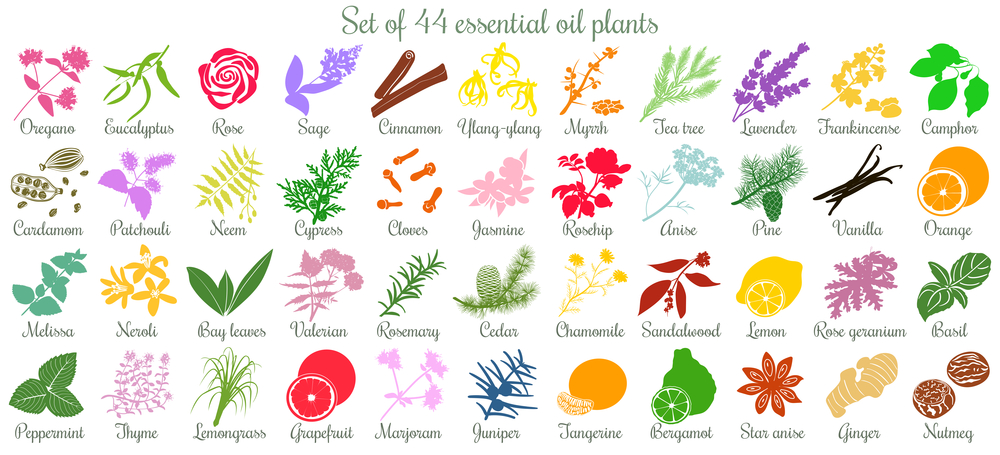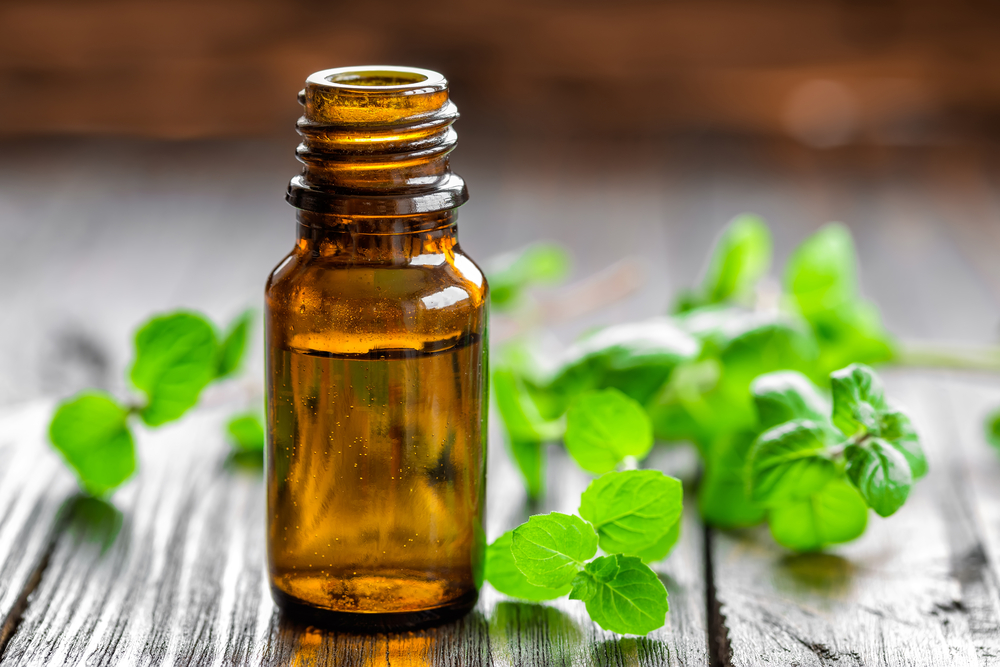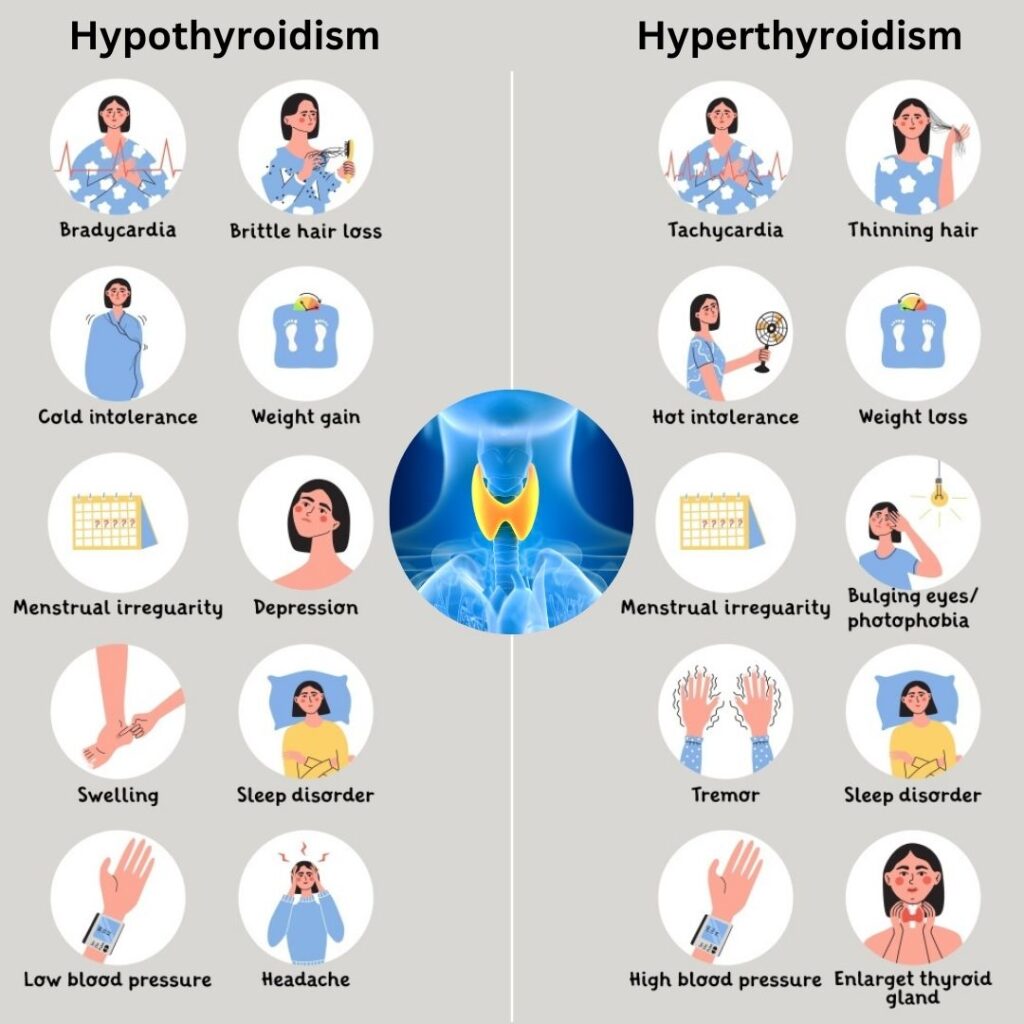What's On This Page?
ToggleMany of you are taking thyroid supplements or medications already, but you might consider adding one more thing into your thyroid health regimen. Simple is best, and there’s nothing more simple or pure that I can think of than essential oils, which are basically extracts from flowers and plants.
The medical community never used to think much of essential oils because after all, how powerful can it be to inhale a flower extract? But let me tell you, I’m convinced this is an excellent and safe way to enhance your current regimen. You see, once you inhale, this “medicine” goes right into your bloodstream, and it doesn’t have to travel through your stomach or intestines.
It goes through tiny capillaries directly into the bloodstream where it then shoots all over your body and activates many biochemical pathways.
We know inhaling the aroma of lavender can cause relaxation and sleep. We know peppermint essential oil can mitigate a migraine, and calendula essential oil can soothe a skin wound. Using oils properly requires a little bit of experience and knowledge. Here is a graphic showing you how many options you have so you can research on your own for other ailments.

Essential oils are naturally-derived potent powerhouses that impact your body in a dramatic way, without the risk of horrible drug side effects. Plus they are inexpensive and available everywhere… online, at health food stores, Alfalfa’s, Sprouts, Whole Foods, even drug stores. I do mean everywhere!
Essential Oils for Thyroid Support: A Simple Guide
Let’s dive into the enchanting world of essential oils, where each scent carries not just a fragrance but a bundle of health benefits especially tailored for your thyroid! Here are my top picks:
- Myrrh: Known for its soothing properties, myrrh is fantastic for calming down hyerthyroidism.
- Frankincense: This oil is a go-to for overall wellness, promoting balance and tranquility within your thyroid function.
- Lemongrass: Not only does it smell fresh, but it’s also revered for improving thyroid gland efficiency.
- Peppermint: For those sluggish thyroid days, peppermint can invigorate your senses and kickstart your metabolism.
- Lavender: Need a natural tension tamer? Lavender’s soothing scent helps reduce stress.
- Eucalyptus: Known for its refreshing aroma, eucalyptus supports respiratory health.
- Ginger: A spicy touch for your thyroid, ginger helps combat inflammation and supports adrenal health.

Hypothyroidism
The essential oils that I recommend in this case, are those specifically devoted to stimulating or producing the secretion of hormones, activating your metabolism which helps you turn food into fuel, and boosting your immune function.
I’m going to break it down by uncomfortable symptoms for individuals have to contend with. If you want more detailed information about it, you may grab a copy of my Thyroid Healthy book.
Gut problems
People with hypothyroidism are often overweight and struggle to digest their food. Sometimes after eating, you might experience a stomachache or flatulence. A few gut-soothing essential oils that can bring you relief include peppermint, fennel, ginger and chamomile.
Here’s just one idea off the top of my head: pour yourself a glass of water, either still or seltzer, and add ice if you like. Then just put 1 drop of chamomile and 1 drop of peppermint in it and drink. This is refreshing and soothing, so long as you don’t have an ulcer (if that’s the case, avoid peppermint and instead use lemon balm).
Headaches
I mentioned peppermint already, you can rub this on your temples, and sniff it. Some EO makers have little edible or tiny pellets which deliver pure peppermint oil into your mouth like a mini bullet of freshness, and that’s better than gum laden with garbage. You can also put a few drops of peppermint essential oil in a cup of water or tablespoon of honey.
I tried this once, and it instantly relieved my tension headache. I didn’t even need ibuprofen! Read my other article, Headaches? Time to Get Your Thyroid Checked!
Muscle Aches and Pain
People with Hashimoto’s and hypothyroidism often hurt more than regular folks, especially after exercising. I’ll help you “create” your own soothing balm now: Pour 30 drops of lemongrass and 15 drops of marjoram into your favorite bottle of body lotion. Make sure it’s paraben-free, but pick any basic unscented lotion that you like. Then you can rub it onto your sore muscles and body aches.
Fatigue and Exhaustion
You can dab one drop each of eucalyptus and rosemary to the the base of your neck (right onto your thyroid) and it will wake you up. You can even take a quick whiff. This stuff is so powerful that you want to waft it into your nose gently by fanning your hand, (and also, you might want to avoid using it within 4 hours of bedtime). P
lay around with the drops, you might want to try 2 drops of rosemary to 1 of eucalyptus or the other way around, and you might also want to put it into a carrier lotion, to keep in your purse all day (and if that’s not enough to wake you up, consider the butterscotch latte!)

Hyperthyroidism
If you have Graves’ disease, the automimmune version of hyperthyroidism, here’s what I suggest from an essential oil standpoint. Mix 15 drops of lemongrass with 15 drops of frankincense, 2 drops of myrrh (warning: it smells awful), as well as 10 drops of lemongrass into a container with a tablespoon of apricot or almond oil.
This can be sniffed or applied to your throat area a few times daily. You can dilute as you desire. You can play around with the ratios of these oils, and even add sandalwood if you like the scent of that. The essential oil mixture might help you deal with anxiety, stress, anger, agitation, tremors, and insomnia. You don’t have to have hyperthyroidism to use this; anyone dealing with stress could try it.
Take 5 minutes to read how, How Stress And Cortisol Impact Hashimoto’s And Graves’ Disease.
You may be interested in reading, The Secret Nutrient that Helps Graves’ Disease.
Beyond Aromatherapy: Lifestyle Tweaks and Tips
While we adore the power of essential oils, let’s not forget other lifestyle adjustments that can significantly impact your health. It’s about creating a harmony of habits that support your gland’s function:
- Mindful Eating: Incorporate mineral-rich foods like seaweed for iodine, Brazil nuts for selenium, and shellfish for zinc. Avoid over-consuming raw goitrogenic foods like broccoli and kale, which can inhibit iodine uptake. Find out how goitrogens damage iodine absorption and glandular health by READING THIS.
- Stay Active: Regular exercise helps to stimulate hormone secretion and improves metabolism. It doesn’t have to be intense; even daily walks can make a difference.
- Stress Management: Chronic stress is a major disruptor. Engage in activities that lower stress levels such as yoga, meditation, or simply reading a book.
- Adequate Sleep: Aim for 7-9 hours of quality sleep each night. Sleep is a regulator of hormonal balance, including your thyroxine (T4).
- Hydration: Keep your body hydrated. Water helps in the proper functioning of every cell in your body.
Embrace these habits along with your essential oil regimen to create a robust foundation for thyroid health. It’s not just about adding something new into your routine; sometimes, it’s about adjusting what you already do to make everything work better together!
Related articles:
You Pay the Price if Your Doctor Misdiagnoses You
Rules for Using Essential Oils

Suzy Cohen, has been a licensed pharmacist for over 30 years and believes the best approach to chronic illness is a combination of natural medicine and conventional. She founded her own dietary supplement company specializing in custom-formulas, some of which have patents. With a special focus on functional medicine, thyroid health and drug nutrient depletion, Suzy is the author of several related books including Thyroid Healthy, Drug Muggers, Diabetes Without Drugs, and a nationally syndicated column.



